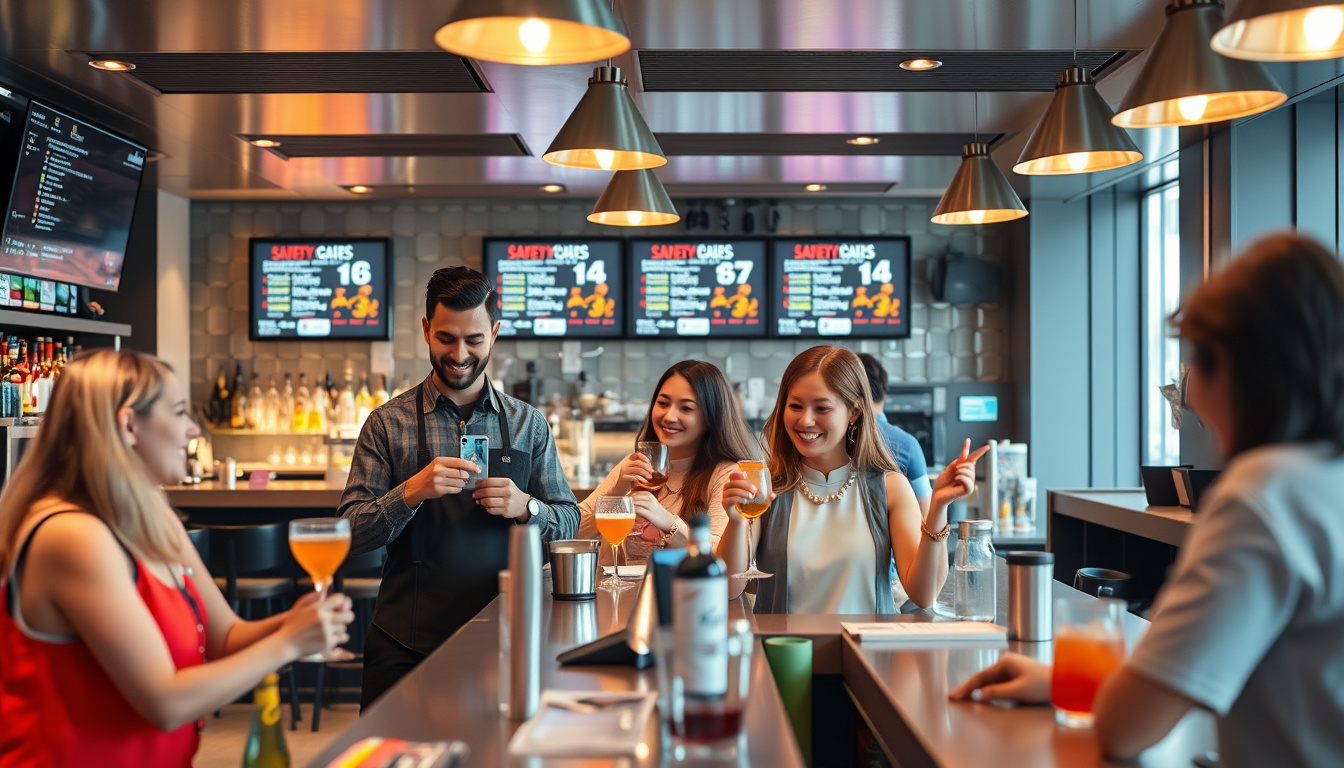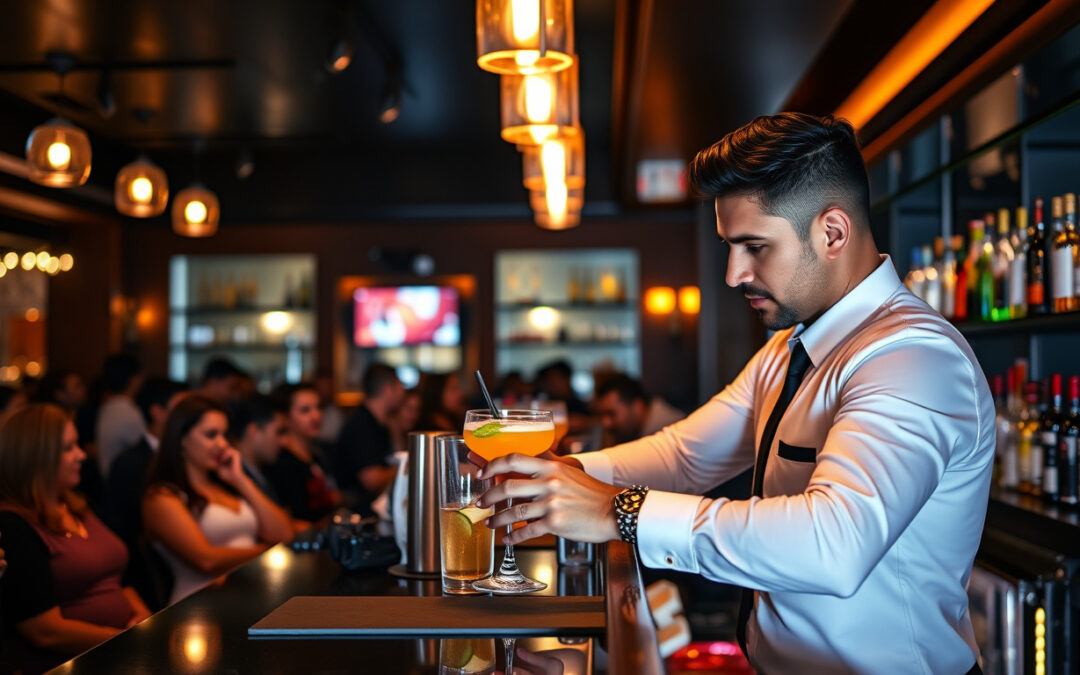In today’s hospitality and retail industries, serving drinks safely matters. Responsible beverage sales go beyond legal rules. They keep customers safe, build a good reputation, and boost long-term profit. If you run a bar, restaurant, or beverage store, use safe drink practices. These practices protect patrons, cut risk, and keep your space welcoming.
This guide shows key ways to serve beverages safely. It helps you follow rules and build trust while growing profit.
Understanding Responsible Beverage Sales
Responsible beverage sales mean selling drinks in a safe, ethical, and legal way. You serve alcohol only to people who are of legal age. You watch how much they drink. You step in if overconsumption appears.
When you use safe drink practices each day, you follow the law. You also help keep the community healthy. This way, you lower risks such as underage drinking, drunk driving, and violence linked to alcohol.
Why Responsible Beverage Sales Matter
Responsible beverage sales are very important. They work hard for every business that serves alcohol:
- Legal Compliance: Laws guide alcohol sales. Not following rules can bring heavy fines, a suspended license, or even closure.
- Safety and Liability: Over-serving leads to accidents and injuries. This makes your business risk lawsuits and harm your reputation.
- Customer Trust: Customers choose places that care about their safety. Trust brings repeat visits and good reviews.
- Community Impact: Safe sales reduce alcohol misuse. This helps communities stay healthy.
By using these practices, you help both your business and your community. You make a safer place for everyone.
Key Strategies for Responsible Beverage Sales
Safe alcohol service needs staff training, clear policies, and smart customer care. Use these strategies to serve alcohol safely and boost profit.
1. Rigorous Staff Training and Certification
Your team is on the frontline for safe drink service. Train every employee in these points:
- Validating legal drinking age: Check IDs carefully.
- Spotting intoxication clues: Look for changes in speech, movement, or behavior.
- Handling tough moments: Learn ways to refuse service safely.
- Knowing company rules: Understand clear signs for when to step in.
Many areas require formal alcohol training. Programs like TIPS (Training for Intervention Procedures) or ServSafe Alcohol offer trusted credentials. They help staff work confidently and correctly.
2. Strict Age Verification Procedures
Start by checking each customer’s age. Always ask for a government-issued photo ID if a person looks near the legal drinking age. Common IDs include:
- Driver’s licenses
- Passports
- State or provincial ID cards
Use electronic scanners to lower error and block fake IDs. Train staff on what to do if an ID seems fake or is missing. Clear instructions should lead to a service refusal.
3. Monitor and Manage Customer Consumption
Watch how much alcohol each customer drinks. Set clear rules by:
- Limiting serving sizes and drinks per person
- Spotting signs like slurred speech or poor coordination
- Stepping in by refusing more drinks and offering water or food
Encourage staff to share notes about customer behavior, especially during busy times. Teamwork is key to safe service.

4. Promote Non-Alcoholic Options and Food
Offer tasty non-alcoholic drinks and food. This helps slow down alcohol effects. It works by:
- Giving guests choices like mocktails, soda, or coffee
- Slowing alcohol absorption when customers eat
- Boosting sales with a diverse menu
Show these options clearly on your menu. Train staff to suggest them when needed.
5. Establish Clear Refusal of Service Policies
Refusing to serve alcohol is a must when necessary. Your business should set out clear rules for refusal. Rules include:
- Knowing when to refuse: Look for signs like high intoxication or fake IDs
- Steps to follow: Staff must call a manager when needed
- Simple conflict resolution: Use calm words to avoid fighting
- Keeping records: Write down refusals for legal safety
These rules give your staff the power to act right and protect the business.
6. Maintain Informed and Visible Signage
Place clear signs near where drinks are sold. They remind customers of rules such as:
- Legal minimum drinking age
- No service when intoxicated
- Reminders to drink responsibly
These signs highlight your focus on safety. They also discourage underage or risky drinking.
7. Regular Compliance Audits and Updates
Alcohol laws change. Stay on top by:
- Regularly checking local alcohol laws
- Auditing your own policies and practices
- Updating training and guidelines as laws shift
- Encouraging staff to report concerns openly
Taking action early cuts risks and shows strong business management.
Benefits of Implementing Responsible Beverage Sales Strategies
When you use these safe drink practices, you get many benefits:
- Lower legal and cost risks from breaking alcohol laws
- Better customer loyalty thanks to trust and care
- Improved ties with law makers and community groups
- Boosted staff spirit as they handle tough drink situations well
- Higher profit by avoiding costly incidents and attracting more guests
Safe beverage service is not just ethical—it is smart business.
Summary: Essential Steps for Responsible Beverage Sales
To serve drinks safely and profitably, follow these steps:
- Train and certify every staff member on legal drink service.
- Check every customer’s ID rigorously.
- Watch and limit each customer’s alcohol intake.
- Offer tasty non-alcoholic drinks and food.
- Use clear rules to refuse service when needed.
- Display signs that share your drink policies.
- Regularly review and update your methods.
By using these steps every day, you build a safe space that cares for customers and keeps your business strong.
Frequently Asked Questions (FAQs)
What is meant by responsible beverage sales?
Responsible beverage sales mean serving alcohol in an ethical and legal way. You check age, watch for signs of too much drinking, refuse service when needed, and help people drink safely.
How can I ensure my staff are trained for responsible beverage sales?
Get your team enrolled in trusted programs like TIPS or ServSafe Alcohol. These courses cover legal rules, how to check ID, find intoxication signs, and manage difficult moments. Hold regular training updates to keep skills fresh.
What are effective ways to refuse service responsibly?
When refusing service, do so politely but firmly. Use calm language, explain the reason, and suggest non-alcoholic drinks. In tough cases, call a manager and note the incident. This careful approach helps keep everyone safe.
For more detailed guidelines on safe alcohol service and training, visit the U.S. National Institute on Alcohol Abuse and Alcoholism at NIAAA.
Using these strategies, you protect your customers and community. Train your team well and serve responsibly to maintain a safe, trusted, and profitable business.


